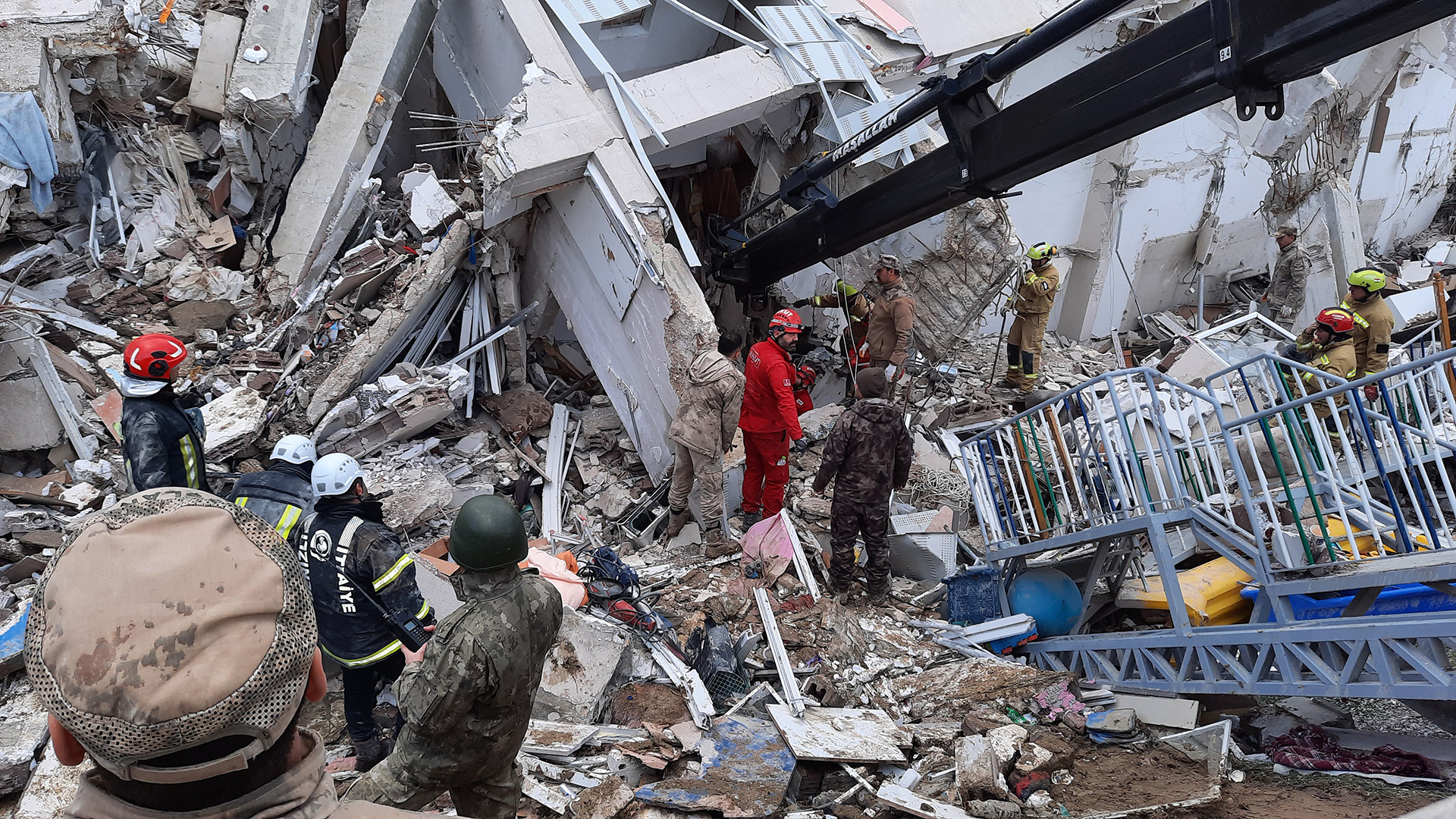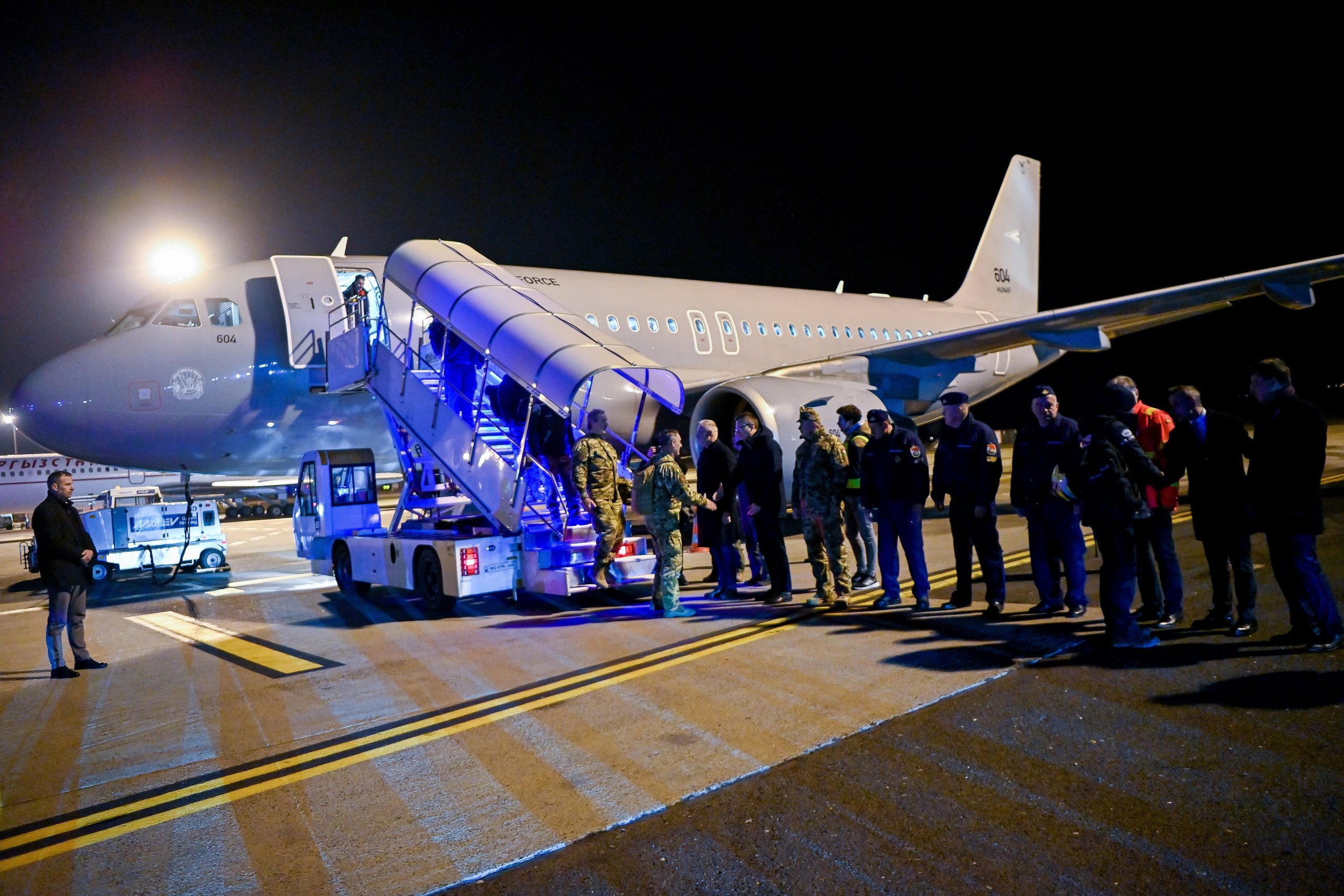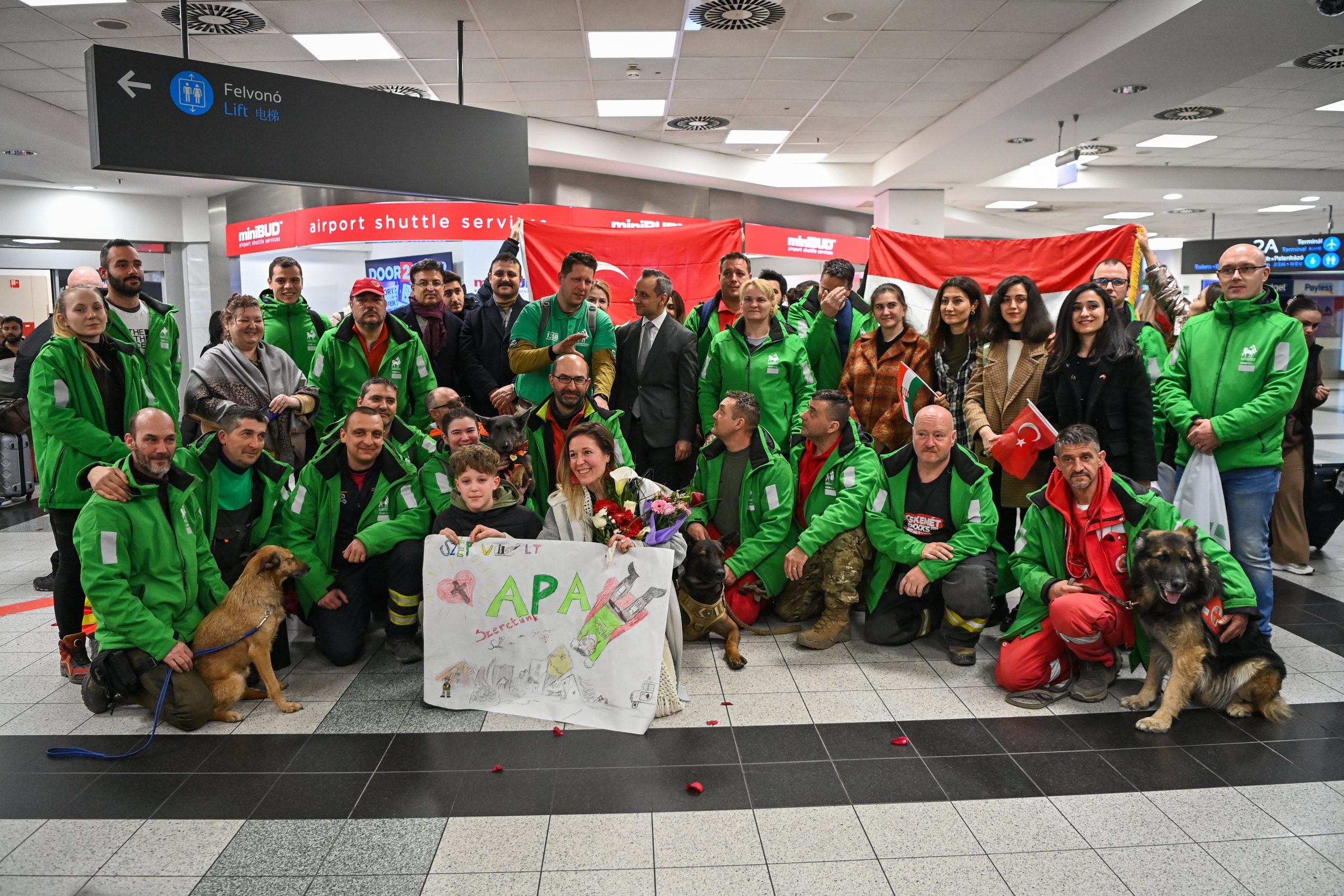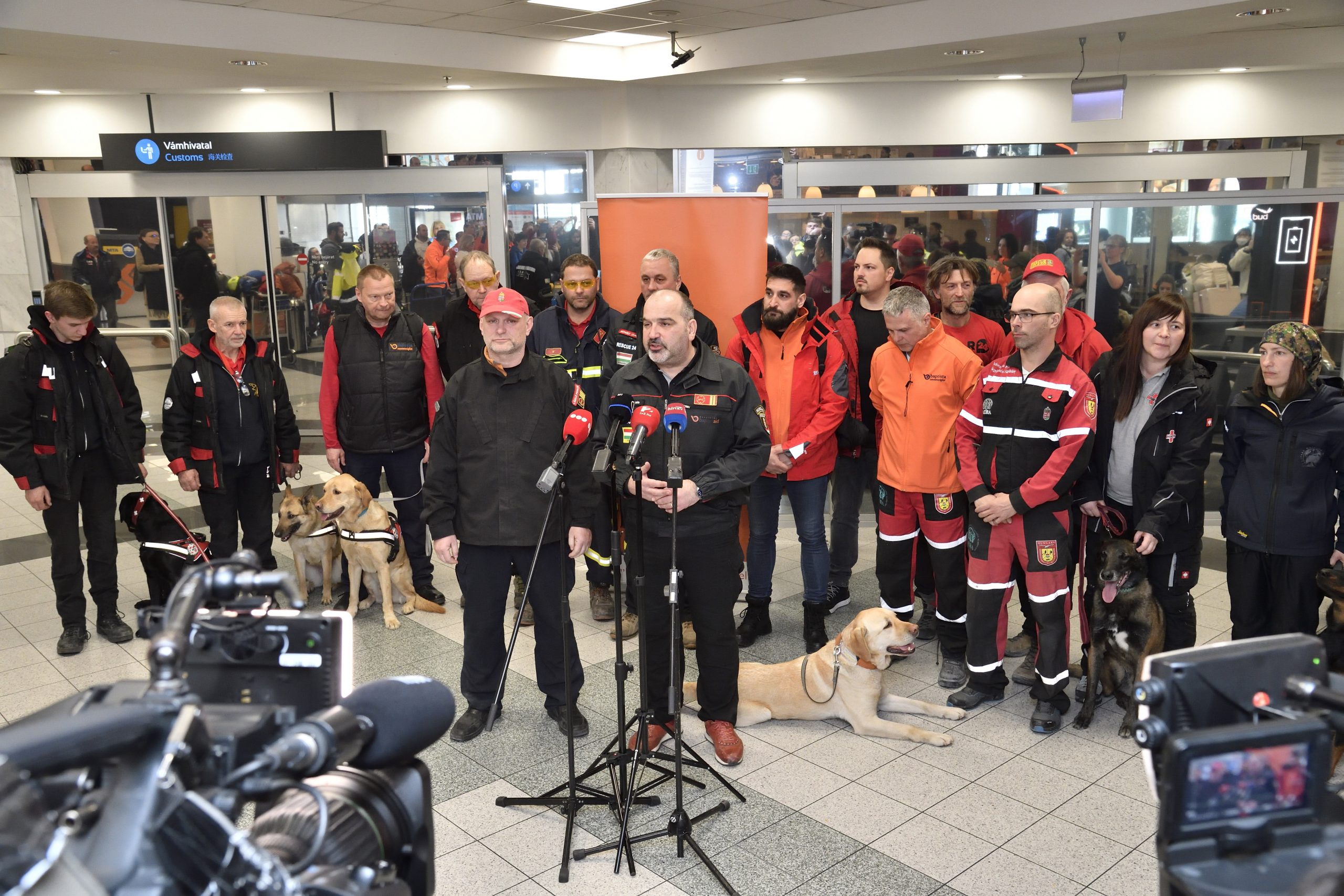
As of Tuesday evening, the Hungarian rescue mission was searching for survivors of the earthquake in Turkey with 116 members.Continue reading

The National Directorate General for Disaster Management’s search and rescue team HUNOR arrived home from Turkey in the early hours of Monday. They rescued 17 survivors, including three children, and pulled out 29 bodies from the rubble in the earthquake-hit country.
In the past few days, 167 Hungarian search and rescue experts and 29 search and rescue dogs have been working day and night among the ruins, rescuing a total of 35 people. Now, as we are 172 hours after the disaster, the international rescue operation is coming to an end and the Hungarian rescue teams are returning home, wrote Foreig Minister Péter Szijjártó on his Facebook page Monday morning.
The military plane carrying the HUNOR rescue unit landed shortly after midnight on Sunday at Budapest’s Liszt Ferenc International Airport, where the arrivals were met by Kristóf Szalay-Bobrovniczky, Minister of Defense, Bence Rétvári, Parliamentary State Secretary of the Ministry of Interior, and Romulusz Ruszin-Szendi, Lieutenant General, Chief of the Hungarian Defense Staff.
The Minister of Defense thanked all those involved in the rescue operation, saying that the Hungarian people are helping both inside and outside the country. He added that those involved in the rescue were doing their best to help.
The HUNOR team left for Turkey on 6 February. The 55-strong rescue team – firefighters, army medics and ambulance staff – started work on 7 February and worked in the damaged area until midday on Sunday.
In addition to the HUNOR rescue organization, the first rescue team of the Hungarian Reformed Church Aid also returned home from Turkey on Sunday evening. The second team of 11 members of the organization is still on mission and continues to work.

The Hungarian Reformed Church Aid’s 6-member team with rescue dogs went to the earthquake-affected area on 7 February, and spent almost a week there. Image: MTI/Illyés Tibor
On Sunday morning, the rescue team of the Hungarian Baptist Aid, the HUBA Rescue24 Firefighting and Search and Rescue International Group, with a total of 18 medical professionals and 8 search dogs, also returned to Budapest. They rescued 7 people from the rubble in Turkey.
László Pavelcze, head of the search and rescue team, said their options were running out.
There is still a minimal chance of finding survivors, as there may be buildings that have collapsed in such a way that they have almost hermetically sealed off parts of the building, so the air has not cooled completely.
If those still in the area are careful with the concrete dozers, they may still be lucky enough to save people, he added.
He praised the perseverance of the “dogs who cannot be fooled”, doing their job, and the heroic work of the team members who did most of the digging, drilling, boring, sometimes breaking through 3-4-5 storeys of buildings, excavating rubble, cutting iron and concrete to get close to the people trapped in the rubble.

Béla Szilágyi, President of the Hungarian Baptist Aid (R), is interviewed, with László Pavelcze (L), the team leader, and behind them the other members of the special rescue team returning from Turkey. Image: MTI/Lakatos Péter
László Pavelcze also pointed out that although the team of experts came from several organizations, a good part of them had been working together for 30 years and had also worked together in 1999 to rescue people during the earthquake in Turkey. He added that the circumstances were very different now and the current conditions of devastation had “shocked everyone”.
Béla Szilágyi, president of the Hungarian Baptist Aid, talked about how the earthquake trapped many people in very small places, where survivors had to wait in minus 7 degrees Celsius for rescue teams to arrive. At the same time, they also had to deal with the aftershocks every day, he added, noting that unfortunately not all survivors could be evacuated in such conditions.
The conditions are catastrophic, with no lighting, no water, people making fires in corners to keep warm and cooking soup to feed the helpers. The survivors are sleeping in tents and cars now out of fuel, with few shelters set up where they could safely survive the cold, he said.
The president of the charity also pointed out that they had so far sent 10 million forints (EUR 25,800) in aid to the victims of the earthquake and that they would like to continue their programs, with a delivery next time on Monday, this time to Syria.
In the meantime, the Hungarian Defense Forces offered 50 military tents to mitigate the consequences of the natural disaster in Turkey on Saturday. It said that the characteristic feature of the highly stable military tents is their easy and quick deployment and relocation even under different soil and extreme climatic conditions. Their versatility depends only on the interior equipment and design, so in addition to accommodation they can also be used for administrative, medical or even storage purposes. With the installation of a heating system and mattresses, the tents can temporarily accommodate up to eight people.
Southern Turkey was hit by an earthquake last Monday with a magnitude of 7.8, affecting ten provinces in the region, as well as the northern part of Syria. So far, the number of victims has exceed 34,000 in Turkey and in Syria.
Featured photo via MTI/Illyés Tibor